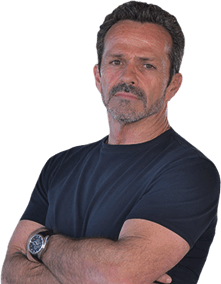Can an intervention work? The realistic yet optimistic bottom-line “answer” is…sometimes.
Exactly what is an intervention? Let us first talk about what an intervention is NOT:
- It is not an action that should be considered or taken without an experienced professional involved.
- It is not actual therapy or treatment.
- It is not something to do without careful planning.
- It is not always voluntary; a forcible intervention, while rare, is when an individual is mandated by a court system to undergo treatment for an addiction.
- It is not guaranteed to work.
Interventions for those with substance abuse disorder are neither simple nor one-size-fits-all, as there are diverse types, approaches, and styles of interventions depending upon the duration and severity of the addiction, the drug of choice, and the personality of the individual who is suffering from the disease.
Now, let us examine what an intervention actually IS. At its fundamental core, an intervention is when a third party believes someone is in a dangerous and potentially life-threatening situation, and that third party addresses the individual with a goal to persuade the individual to take immediate, measurable, and concrete steps towards positive change. Easy enough, right? Think again.
For the sake of example in this article, we’ll use the name “Taylor” as the person with the addiction.
Some interventions take a hard-nosed tough-love approach. These attempt to “wake up” Taylor with a shock-and-awe technique surrounding accountability. Taylor is forced to face and address examples of the physical and emotional pain and damage induced upon family, friends, coworkers, and even innocent strangers; they are all the victims of the addiction and of Taylor’s actions. Historically, the “Johnson Institute Model” is one that exemplifies this method.
Others approach intervention in a more gentle manner, and instead of spotlighting those in Taylor’s circle of influence who have been hurt, taken advantage of, or neglected, the priority focus is placed on Taylor as the victim–a victim of the disease. Rather than breaking down Taylor, this technique builds up Taylor. The manner utilizes the concept that Taylor deserves not a punishment, but a chance at hope, help, and opportunity. The “ARISE Intervention” technique employs such methodology.
While you may have success performing an intervention with either option, please remember to consult an experienced professional in the field of addiction if possible. Consider all options before approaching an individual who may need actual therapy and treatment.
If you are concerned about someone in your life who is struggling with addiction and you’ve decided approaching the individual is your best option, how can you best help with an intervention? The Mayo Clinic provides several excellent tips:
- Consult An Addiction Professional
- Make A Plan
- Gather Information
- Form The Intervention Team
- Decide On Specific Consequences
- Make Notes On What To Say
- Hold The Intervention Meeting
- Follow Up
Speaking of actual outcomes, Wavelengths Recovery has a unique Each One, Teach One approach to treatment that has positively impacted so many individuals, many who have gone on to become part of the Wavelengths team, giving back to those with whom they can relate, those who are suffering with substance abuse disorder, those who are in need of serious help from people who truly empathize and who know exactly what it is like to walk many miles in the tired and tattered shoes of addiction.
Through our own personal experiences with overcoming addiction, Wavelengths has learned that tackling addiction requires multiple levels of care and a customized, comprehensive treatment plan in order to have the best chance at success. Every person is treated as an individual; there is no cookie-cutter treatment plan, there is no templated program at Wavelengths, and there never will be.
So what’s the final word? It all goes back to the adage that the only person who can ultimately make the change is that individual person. But with the appropriate intervention, love, and support of family and friends, it sure can help the chances for success. Wavelengths Recovery is here for you and your loved one at any time. 1-855-799-6869.





Share This Article